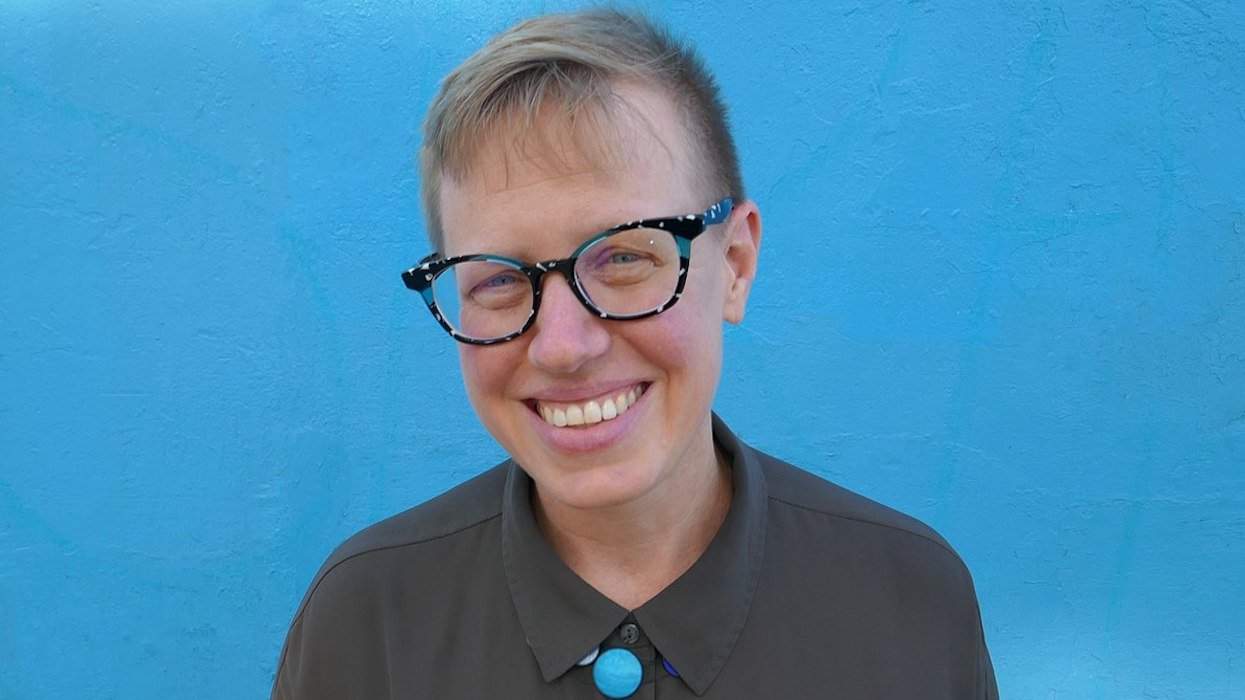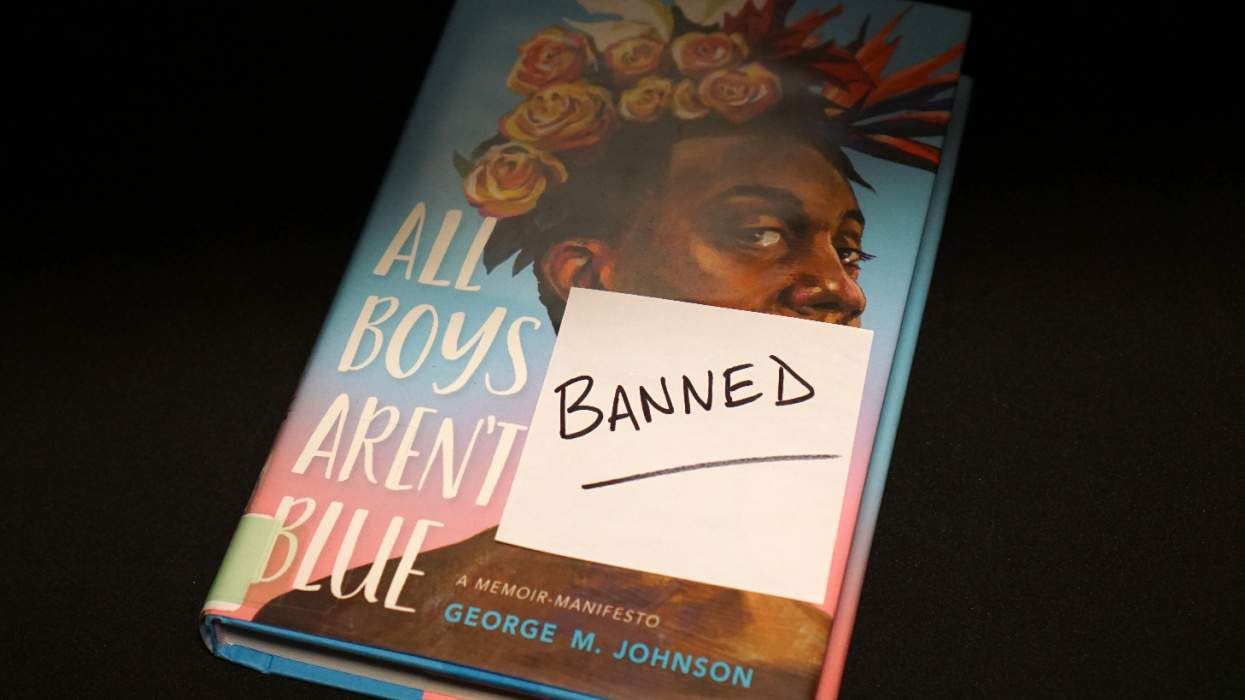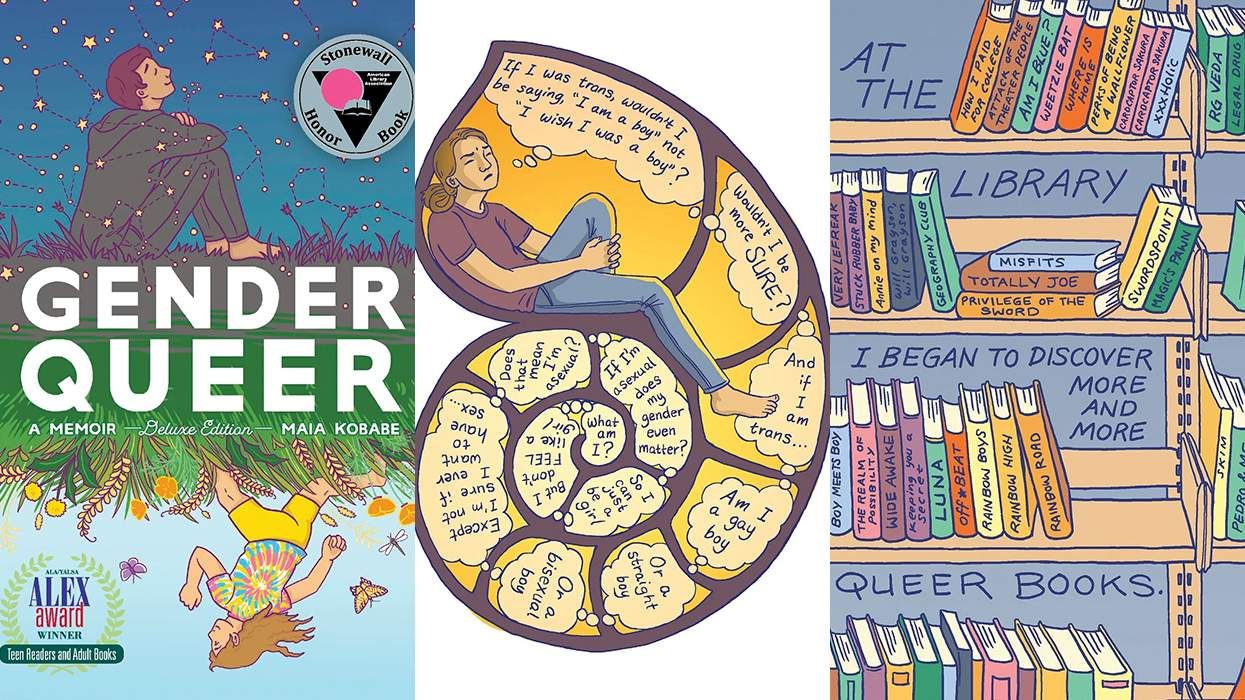It’s easy to despair about the many moves to ban books, especially LGBTQ-themed ones, from school and public libraries across the country. But there’s another way to react: Take action, says Emily Drabinski, the queer woman who’s president of the American Library Association.
“We need all hands on deck in this moment, and there’s something everyone can do,” Drabinski tells The Advocate during Banned Books Week.
There were 1,269 demands to censor library books and resources in the U.S. in 2022, according to the ALA’s Office for Intellectual Freedom. That’s up from 729 in 2021 and the most since the group began keeping track more than 20 years ago. 2023 is on track to exceed 2022.
The majority of the books targeted for removal are either by or about LGBTQ+ people or people of color. Of the 13 most challenged books of 2022 (the ALA usually lists 10, but last year four tied for 10th place), seven had LGBTQ+ content, and several of the others dealt with people of color or were deemed by the challengers to be sexually explicit.
This comes at a time when LGBTQ+ Americans have unprecedented visibility and are coming out at younger and younger ages, and when there has been tremendous progress on LGBTQ+ rights. But now conservative forces are pushing back, as evidenced by attacks not only on books but on the community generally, with state bans on gender-affirming care for transgender people and other homophobic and transphobic legislation.
Related: There's Been a 33% Increase In Book Bans Across the U.S., Says PEN America
Backlash against progress is one reason this is happening, Drabinski says, but another is the erosion of trust in public institutions, including libraries and schools. “People believe stories that they wouldn’t believe before,” she says.
But, she notes, there’s much that supporters of the freedom to read can do to counter censorship efforts, which polls show are opposed by a majority of Americans. Find out when your school board and library board meet, and attend the meetings. Research what books are being challenged, read the books, and speak out for them. Encourage like-minded people to attend meetings as well. Run for a position on the board. The ALA’s Unite Against Book Bans website offers numerous other ideas.
And Saturday, which ends Banned Books Week, is a day of action, Let Freedom Read Day. The ALA urges all supporters to do at least one thing that day to promote the freedom to read, such as calling or writing policy-makers, buying or checking out banned books, joining Unite Against Book Bans, or donating to a library or advocacy organization. There are many more possibilities listed online.
There are those who argue that book bans aren’t really bans. Yes, books are removed from a given library or access to them is restricted, but “in zero cases since the advent of Banned Books Week has a local or state ordinance been passed in this country that forbids the sale or general possession of any of the books in question,” Matthew Walther wrote in a recent New York Times opinion column.
Drabinski finds this argument without merit. “Not everyone can afford to buy every book they want to read,” she says. “Public libraries are institutions that provide access to every book for everyone.”
“It is true that we select some books and not others, but we have expertise in that,” she says of librarians. The mistrust of librarians’ decisions is an example of that erosion of public trust, she notes.
Drabinski has a long history of loving libraries. When the Idaho native was trying to succeed as a writer in New York City some years ago, she realized she needed a steady job, and she found one at the New York Public Library. “I loved it from the very first day,” she says. She then went to library school, and in 2001, while she was attending, she joined the ALA, having been inspired by its opposition to the Patriot Act.
She has been involved in many ALA activities, chairing several committees and taking on numerous other tasks before becoming the association’s president for 2023-2024. Professionally, she is an associate professor in the Queens College Graduate School of Library and Information Studies in New York.
There were undoubtedly other ALA presidents drawn from the LGBTQ+ community, she says — “we are everywhere, and we’ve always been everywhere” — and some were probably out to friends and family members, but she’s likely the first one who is publicly out.
She lives in Brooklyn with her partner, history professor Karen Miller, and they have a 15-year-old son and several cats. Of their son, Drabinski says, “He’s the straightest, most gender-normative kid I know.”
Drabinski also has a long history of activism. “Since I was a little kid, I’ve been rabble-rousing,” she says. In their youth, she recalls, she and her sister lobbied their local frozen yogurt shop to stop using Styrofoam containers. (She has an identical twin sister, also queer, who came out in college just before Emily did.) Drabinski organized Idaho’s first Amnesty International student chapter and has been active in the labor movement as well.
And what’s her recommended reading? For one, Flamer by Mike Curato, a graphic novel about a queer youth at summer camp, something anyone who’s ever felt different will find relatable, she says. It’s one of the most frequently challenged books these days. Another on her list is Stay True, a memoir of friendship by Hua Hsu.
So for Banned Books Week and beyond, Drabinski says, visit your library, pick up a book, and speak up for the freedom to read. The book-banners are out there and vocal, and “we need to match and exceed their numbers,” she says.
Drabinski also recently gave an interview to GLAAD President and CEO Sarah Kate Ellis. Watch it below in two parts.















Charlie Kirk DID say stoning gay people was the 'perfect law' — and these other heinous quotes
These are some of his worst comments about LGBTQ+ people made by Charlie Kirk.